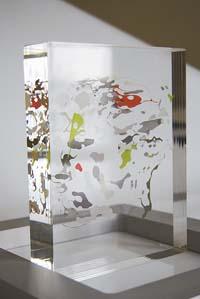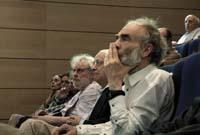Mikhail Gromov, 2009 Abel Prize winner

Award for relating geometry and other areas of mathematics
Russian mathematician Mikhail Leodinovich Gromov is the winner of this year's Abel Prize, the highest prize awarded annually in mathematical matters. Gromov is geometry, one of the largest of current geometries, and, as a summary, it can be said that he has worked on the basis of the relationship of geometry with many other fields of mathematics.
Gromov is a clear reference in modern geometry. "Almost anyone who has worked with simple geometry or the relationship between geometry and topology has had as reference the work of Gromov," says Raúl Ibáñez, mathematician and geometry of the UPV. "In 2000 he came to Bilbao to a congress where he had already done his best known works. He was already one of the great names of geometry."
To understand the importance of your work you have to think that you have created data management tools for any measure. Often this dataset presents a structure of geometric spaces. They are not spatial data necessarily; they can be protein concentration data, material traction test results, digital photo pixel information or any other data.
The mathematician defines a geometric space with this data and uses geometric tools for the treatment and interpretation of the data. For example, you can calculate distances within this geometric space. The basis of this methodology was created by mathematician Georg Riemann. In the 20th century, and in the 20th century, Gromov has generalized research by analyzing the spaces formed by geometric spaces. He also analyzed the topology of Riemann's spaces.

In addition, he has been one of the creators of simplified geometry. "It is the geometry of spaces that serve to calculate other mathematical objects rather than distances. It serves, among other things, to develop mathematical models of mechanics of physical systems. Describes movements, etc. explains Ibáñez.
On the other hand, Gromov has related geometry to algebra, as he has worked on the geometric theory of groups.
Therefore, Mikhail Gromov is the winner of the 2009 Abel Prize.





